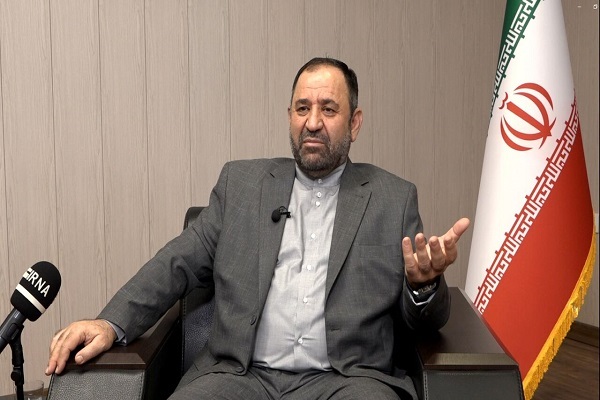
TABNAK, Sep, 07: “No country faces economic advantages and opportunities in Syria available for Iran,” he said.
Syria has been Iran’s long-term ally. It stood by Iran during Iraq’s 8-year imposed war on Iran. However, economic experts believe that despite the close political and diplomatic ties between the two countries, and Iran’s strong security support for Syria during ISIS attacks, Tehran has failed to win a large share of Syrian markets.
However, despite political tensions between Turkey and Syria, Ankara’s share of Syrian market is much more bigger than that of Tehran.
It is also good to know that Syria’s closeness to a country like Egypt is also an economic advantage for Iran in terms of transit costs.
Sending goods to Egypt from Iran takes nearly 20 days and paying Suez Canal transit costs is another challenge as well. However, Syria can act as a bridge to cut down on the fees for Iran.
Before the 2011 conflict, Iran's presence in the Syrian market was not limited to the export of non-oil and oil products, where Iranian technical and engineering services companies and some industrial firms had an active involvement in the country’s projects.
Between 2007 and 2017, Iranian companies implemented various technical and engineering projects and investments worth about $2.5 billion, but they ground to a halt after the war started.
Other Iranian investments in Syrian industries such as the automotive sector almost stopped or sharply declined for similar reasons.
Syria has suitable economic and commercial capacities in agriculture, industry and minerals. It produces wheat, barley, cotton, lentils, peas, olives, beets, beef, mutton, eggs, chicken, and milk.
It also assembles cars and produces oil, textiles, food, beverages, tobacco, phosphorite and cement. The country’s mineral resources include oil, phosphate, chrome, manganese ore, asphalt, iron ore, salt, marble, gypsum and hydro.
The war and Western-led sanctions have had a devastating effect on Syria’s economy. In 2008, Syria’s overall foreign trade stood at $30 billion. In 2020, this figure was barely $5 billion.
Meanwhile, the post-conflict economic trajectory is interesting.
According to International Trade Center (ITC) statistics for 2020, Turkey accounted for 38.5% of exports worth $1.6 billion to Syria, China 20% with $834 million, Egypt 7% with $289 million, Russia 4.4% with $183 million, India 3% with $124 million followed by Lebanon with $122 million.
Iran's exports to Syria stood at about $120 million, giving it a no better rank than seventh in the Syrian market. According to unofficial reports, a part of Iran's exports to Iraq and the UAE is re-exported to Syria.
Tehran and Damascus are working to raise their bilateral trade to a target of $2 billion by 2025. To achieve this, they are moving towards free trade, having signed a raft of agreements on taxation, customs, transportation, standards and quality maintenance.